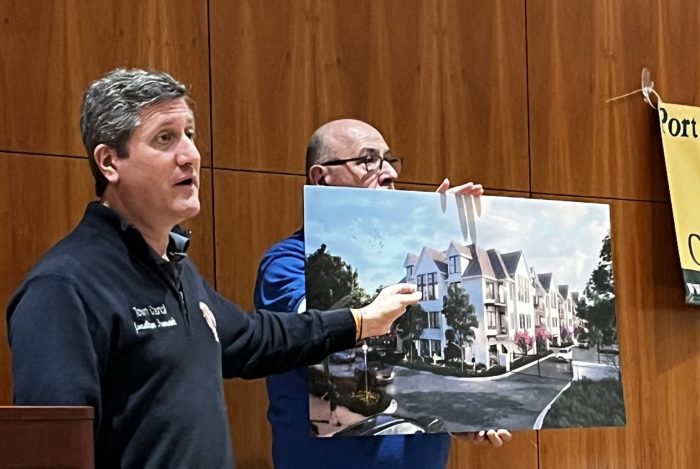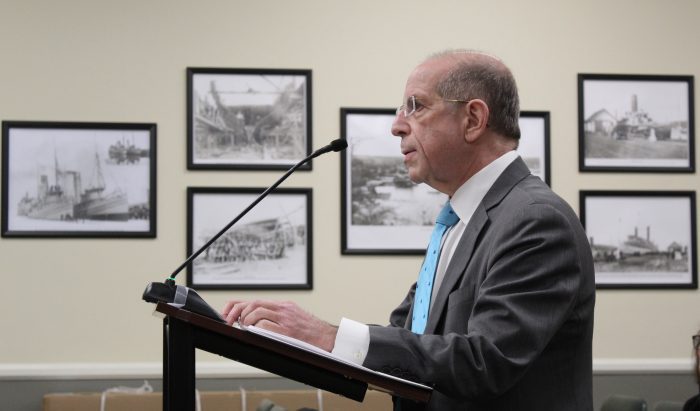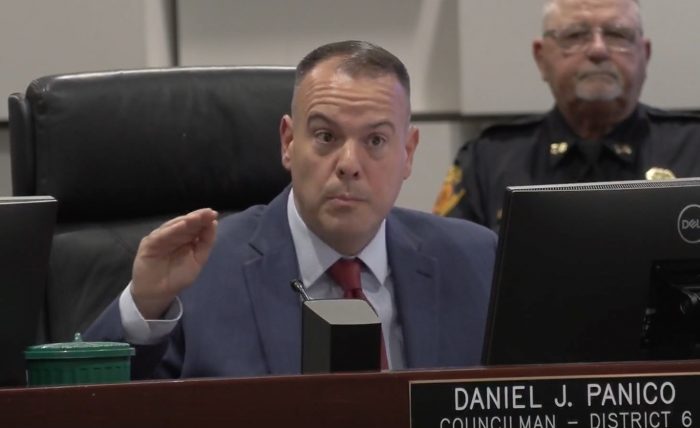By Samantha Rutt
Three Village Civic Association held its monthly meeting at the Setauket Firehouse Monday night, Dec. 4. The meeting was well attended by members of the community and featured guest speakers, New York State Sen. Anthony Palumbo (R-New Suffolk ) and Assemblyman Ed Flood (R-Port Jefferson).
Civic president Charles Tramontana reminded the community of next Tuesday’s fire commissioner vote. The vote will be held at Setauket Fire Department Station 3 on Nicholls Road from 2-9 p.m. Anyone who is registered to vote is eligible to participate.
Palumbo and Flood updated the body on various developments in Albany, including the state budget, recent bail reform laws, community projects and wastewater infrastructure. They also took questions from the audience.
One of the foremost issues discussed was that of last week’s Brookhaven Town Board meeting, a redevelopment plan for Jefferson Plaza in Port Jefferson Station calling for adding homes to the shopping center, built about 1959. The project is set to include 280 apartments and a retail area, including a food court, gym and other shops.
Attendees addressed concerns about the potential development, urging for a more logical and in-line suburban development plan. Carolyn Sagliocca, vice president of the Port Jefferson Station/Terryville Civic Association, attended the meeting to voice concern over the potential development. She asked for the Three Village community’s input on the matter.
“What a nightmare is happening around us,” she said. “I wanted to let everyone know that public comments are open for 30 days following the hearing.”
Monday’s civic meeting also mentioned the omission of wastewater infrastructure on recent ballots and the growing concern for a better infrastructure plan. Suffolk County Legislator-elect Steve Englebright (D-Setauket) spoke briefly on the issue.
“Sewers are a tool, they’re not the answer,” Englebright said. “If you look at what the three large sewers on the South Shore of Nassau County have created, they’ve drained the water table,” adding, “It’s a matter of, like with many things, a matter of balance.”
The meeting also included a collection of healthy canned food items for the Stony Brook Food Farmacy food pantry.
The meeting highlighted the importance of open dialogue and community engagement in addressing critical issues facing the Three Village area. The association holds monthly meetings that are open to the public.
For more information about the Three Village Civic Association, visit its website 3vcivic.org.













